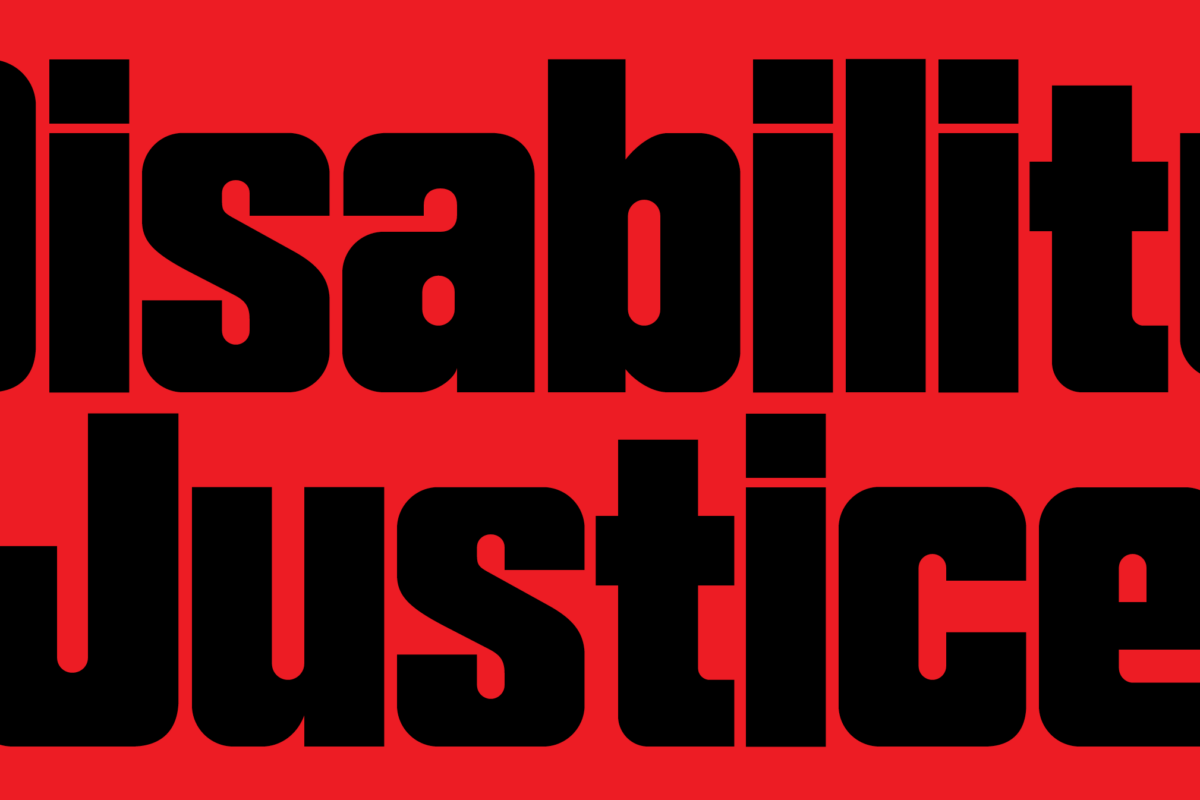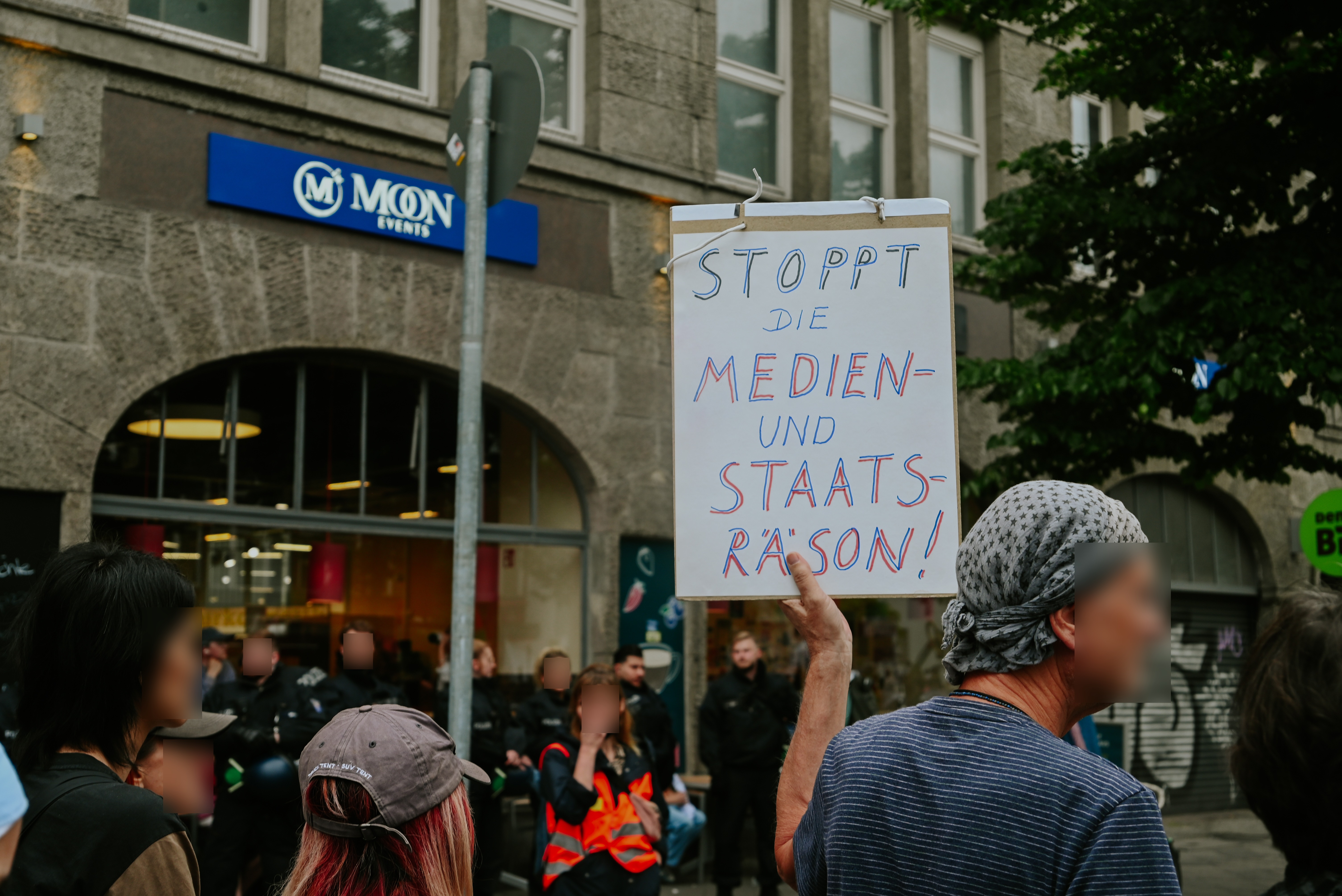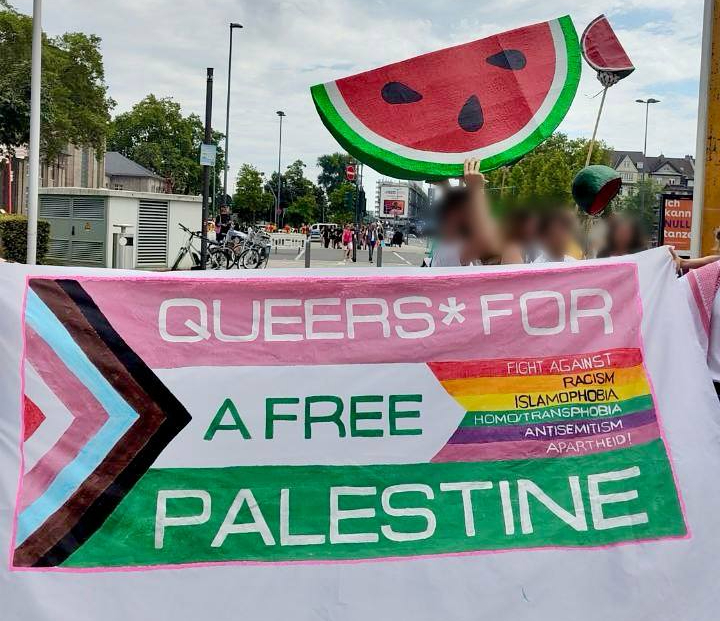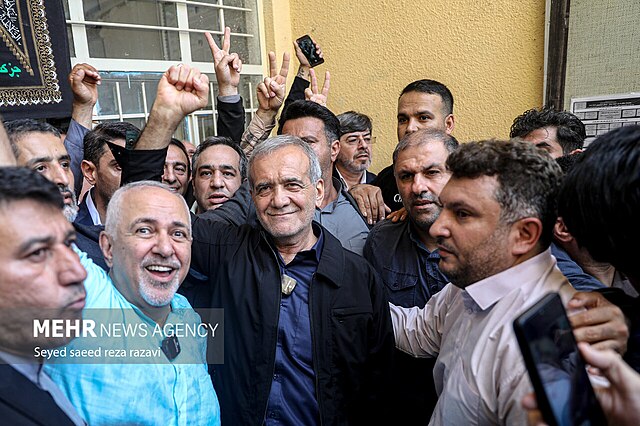In 2005, Reformist firebrand Mostafa Tajzadeh, gave a speech at the HQ of the Participation Front – the biggest party of Iran’s Reformist faction. He aimed to rally supporters for the upcoming presidential election. Tajzadeh related how the pro-Khomeini Islamic left, was kicked out of the government after Khamenei’s ascent, did an autopsy on their record and policies by looking at Clinton’s “triangulation,” Blair’s New Labour, and Anthony Giddens. It decided to renovate itself. That ‘Left’ was after all, just like every other social democratic party in the neoliberal era. Just like most of those parties in the West, the Reformists continued to triangulate with the right.
Since the mid-90s, Iran has held eight presidential elections. Of these seven were competitive, albeit neither free nor fair. The exception led to the 2021 presidency of Ebrahim Raisi, who was recently killed in the helicopter crash in the Northwest of Iran. Raisi’s path over a decade led from the margins to leading the religious and financial juggernaut Astan-e-Qods, to the head of Judiciary and then the presidency.
Raisi’s status as an arch Principalist (the hardliners in Western media), together with Reformists’ underwhelming performance in 2021 elections, led observers to pronounce the death of the Reformist faction. They also saw Raisi as a possible, or likely, successor to the 85-year old Supreme Leader. But in 2024 elections Reformists won the presidency for the first time since 2001 with Pezeshkian, a self-identifying Reformist. Former president Rouhani’s administration (2013-21) had been backed by Reformists but he himself came from the moderate wing of the Principalists and never identified himself as a Reformist.
Iran’s presidential elections are always interesting because of the complex factional politics which produces surprises. Recently the Spanish online newspaper El Diario compared it to how the Holy Spirit, supposedly, enlightens cardinals to choose the Pope.
The recent election saw for the first time, a competitive election without even a 60% turnout. There had been the 2021 brutal crackdown on the Women, Life, Freedom protests; the 2019 fuel hike protests, mismanagement of the COVID pandemic, and a miserably declining economic situation. The first round of the election saw a measly turnout of 39.9%, the lowest ever in the history of The Islamic Republic—a system priding itself on massive turnouts, and using those to gain legitimacy at a world stage.
Even with such a low turnout the candidates of the Principalist ruling coalition lost. After 1997 the Reformists appealed to the deep grievances of large sections in Iran, campaigning on cultural and social freedoms, minority issues, and a more liberal foreign policy. Assumptions were that the Reformists would hugely benefit from higher turnout, as their votes came from the educated urban middle class in bigger cities, or those sidelined by the post-1979 government. Supposedly the government enjoys the strong support of close to 20 million voters, and they will always show up to vote for the Principalists. But with a turnout lower than 40% they ended up losing. The 8% turnout in the second round of the parliamentary election in Tehran in early May suggests that the government is hemorrhaging supporters, including from its most ardent, always-turn-out-to-vote demos.
Another new aspect was that the Reformist Pezeshkian won, without appealing to the supposed Reformist base of women, the youth, and the educated urban middle class. His messaging, especially in the first round, was as apolitical as possible. He kept repeating “Let’s not fight” and “let the experts work”. That changed in the second round when facing off against the more “radical” Principalist candidate.
Iran’s political debates don’t really deal with the question of economy. It often comes down to “we should make the economy better” or “we should have growth.” The main dividing lines over 20 years has been on social and cultural freedoms, and foreign policy.
Pezeshkian is a devout Muslim, but he stood closer to the side of freedom of lifestyle. He criticized lack of ‘proper’ Hijab not unlike the Principalists. But he censured authorities for the youth retreat from religious norms; and for harsh measures against those without ‘proper’ Hijab. He famously criticized authorities in the parliament following Mahsa Amini’s death in the custody of Iran’s infamous Morality Police. He also talked about the need to build ties with the West and making concessions to enable agreements. Zarif, the previous foreign minister who is the face of the Nuclear Deal between Iran and the West, was appointed as Vice President in Strategic Affairs on Thursday
Then there was Speaker of Parliament Qalibaf who stopped short of talking about freedoms. He based his fourth losing campaign as a “strong manager,” or strongman, and repeated calls for dealing with the ‘problem’ of Afghan migrants in Iran, including promises to build a massive wall on Iran’s Eastern border. He started the election riding high in the polls but once more, everything soon turned sour for him. He seemed to be mostly on good terms with Pezeshkian who was recently elected to a fifth-term as member of the parliament, and was one of few prominent Reformist MPs during Qalibaf’s mandate.
Former nuclear negotiator Jalili was clearly on the other side, having his main support base among the ranks of hardliner Endurance Front, presenting himself as a crusader against the West and against corrupt, entrenched business elites in the country; an Ahmadinejad redux.
The Iranian left mostly stayed away from the elections. The left opposition abroad almost entirely boycotted the elections, as usual. That included the Tudeh party or various offshoots of the People’s Fedai Guerrillas, massive organizations in a bygone era now turned to miniscule groups bickering over their legacy. Many of the well known union organizers inside the country, who risk jail or have been jailed for their organizing work, also boycotted the whole affair. Iran bans independent labor unions and has ramped up its crackdown in the last few years amid a visible increase in their number and activities.
The purported leftists who decided to take part were divided between Jalili and Pezeshkian. Trade-offs abound. One circle, organizing through a YouTube channel called Jedaal (struggle) voted for Jalili. They portrayed him as an anti-imperialist, pro-worker, loyalist to the ideals of the 1979 revolution, and voted for him. They ignored his affinity with the most conservative faction in the government, or visible reactionary figures around him.
A second group of mostly Reformist-adjacent or former Reformist activists voted for Pezeshkian. They cited his support for social and cultural freedoms and his declared opposition to privatization of health and education sectors. But they overlooked the horde of economists and business leaders close to him, or his appearance at the Chamber of Commerce supporting free trade and market economy. Members of the Chamber of Commerce played notable roles in his transitional team.
Turnout was just below 50% in the second round. There were ridiculous attempts to link the turnout to foreign policy, both calling for and against voting. These forget that Iran was labeled a part of the Axis of Evil after massive turnouts for Khatami and Iran’s collaboration with US’s invasion of Afghanistan; or that the West and Raisi’s administration were reportedly very close to reviving the nuclear deal until some voices from the Iranian side killed it. Now that is not to say that Iran would not put up a more friendly face towards the West, especially the EU, at least until this year’s US presidential election.
With a failing economy Iran needs to strengthen its ties to every country it can. It needs big investments and lots of trade, just to keep the collapsing economy afloat. Former administration tried that with neighbors and with Russia and China. Biden kept the Maximum Pressure campaign that Trump’s administration started to cut Iran from the world. Some tiny tweaks followed with market volatility in the wake of Russia’s invasion of Ukraine. It wasn’t nearly enough.
Pezeshkian’s closest advisors were part of the team that brought about the Nuclear Deal in 2015. A second Trump administration might end all the possibilities for its revival or managing the friction between Iran and the West.Even given the most benign intentions and initiatives, the world that allowed for a nuclear deal might be over. As NATO feeds every last Ukrainian soul to the brutal Russian war machine to keep EU on its leash, the US shields its closest ally to enforce its apartheid rule and commit a genocide, to put the Middle East in its place. Taiwan might be next. The nuclear deal needed not only Iran and the US to sign onto the framework, but also France, Germany, and Russia and China.
In the region, the new government would follow the rapprochement with the Saudis and Emiratis to lower the heat so as to attract an inflow of investments from the other side of the Persian Gulf. But with tensions being at an all time high in the Middle East, it’s only a fool’s errand to predict what will happen. In the wake of Haniyeh’s assassination in Tehran, a full invasion of Lebanon by Israel, every day closer to reality, could upend not just Iran, but also the whole region.
Low turnout carries domestic consequences. Khamenei summed the numbers of voters in both rounds and called it 55 million, trying to hide how dismal the numbers were. Some on the left had predicted that the system would heal social wounds and recreate its ‘hegemony’ inside the country by shoring up votes with a serious reformist contender. If there were such a plan, it failed. To retake the lost hegemony the Islamic republic needs to do a lot more: curtailing its most rabid supporters, making serious concessions in terms of lifestyle, and pull off miracles in solving the economic downturn and re-establishing social safety nets.
Over the last two administrations there has been a visible erosion of state institutions. These were hollowed out first by US sanctions and then by domestic mismanagement and simple greed. It led to a shattering of state services and safety nets. It’s a big task to revive and rebuild what’s lost, especially with privatizers and business interests around the government. Pezeshkian, a medical practitioner himself, kept talking against privatization in the health and education sectors. That alone would be a major step. One could wish that the Islamic Republic in general and the Reformists in particular have learned their lesson. One may remember all the withered wishes.
The Reformists have traditionally been interested in relying on the Reformist-aligned Worker’s House and state-sanctioned Islamic Work Councils to deal with labor issues. However with the rise of independent-but-illegal unions and labor protest, that might not work anymore. Tactics are evolving and independent unions around the country are communicating much better than before. The Iranian Teacher Trade Association, in Tehran, can now consult with the workers organizing in Haft Tappeh Sugar Cane Mill in Shush. Oil sector contractors in Assaluyeh could learn from Heavy Equipment Production workers in Arak. Obviously, the state and its intelligence apparatus have also improved their tactics and harshened punishment for independent organizing. In a declining economy, workers have nothing to lose but chains. If Pezeshkian keeps promises to back freedoms, and provides some space for the activists and reduces the state’s repression, it could ease the labor movement efforts to organize and create opportunities for solidarity movements to form and move ahead. Pezeshkian and all other candidates promised to raise the minimum wage according to the official inflation rate. Though part of the law, over the years this has been neglected a lot. With inflation numbers around 40% or more, it would have a huge impact on the lives of the most marginalized.
Pezeshkian’s lack of ambitious, or even concrete, programs during the campaign was so apparent that he was criticized for it by both Jalili and those who boycotted the elections, and his own supporters too. He kept insisting on unity and reconciliation and referring to various limitations here and there. He envisages a technocratic government on good terms with all power centers, with vague promises of improvements.
Tajzadeh has just started his 10th year in jail in his second stint as a political prisoner. He boycotted the election and referred to Pezeshkian’s victory with low turnout as hollow. Had he outside prison, he might have described Pezeshkian as our own Starmer. It is, of course, a vastly different setting so a Starmer might be the best one could hope for in the Islamic Republic of Iran.




